12 Apr2019
By Denise Pearson
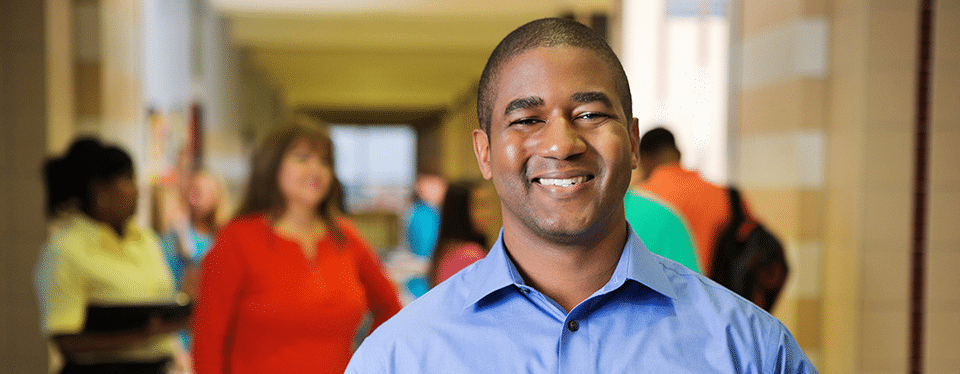
Historically black colleges and universities (HBCUs) and other minority-serving institutions (MSIs) are uniquely positioned to engage higher education policymakers, researchers, practitioners, and other stakeholders to increase the participation of males of color throughout the teacher pipeline. To that end, Project Pipeline Repair: Restoring Minority Male Participation and Persistence in Educator Preparation Programs is a three-year, research-based initiative that emphasizes cross-sector collaboration as foundational to addressing three interconnected problems: nationwide teacher shortages, the lack of teacher diversity, and the teaching profession narrative.
On October 2-5, 2019, the State Higher Education Executive Officers Association (SHEEO) will host the Project Pipeline Repair Summit that will bring together P-16 policy, institutional, and community leaders to culminate this collaboration between state agencies, HBCUs, and partnering school districts in four states (Arkansas, Louisiana, Mississippi, and South Carolina). During the Summit, we will engage in deep conversations with higher education policy and practice experts, including educator preparation researchers and practitioners. Representatives from other MSIs and organizations with similar aims are welcomed, and will also be present to expand the learning and build capacity in these important policy and practice areas.
02 Apr2019
By Katrina Norfleet
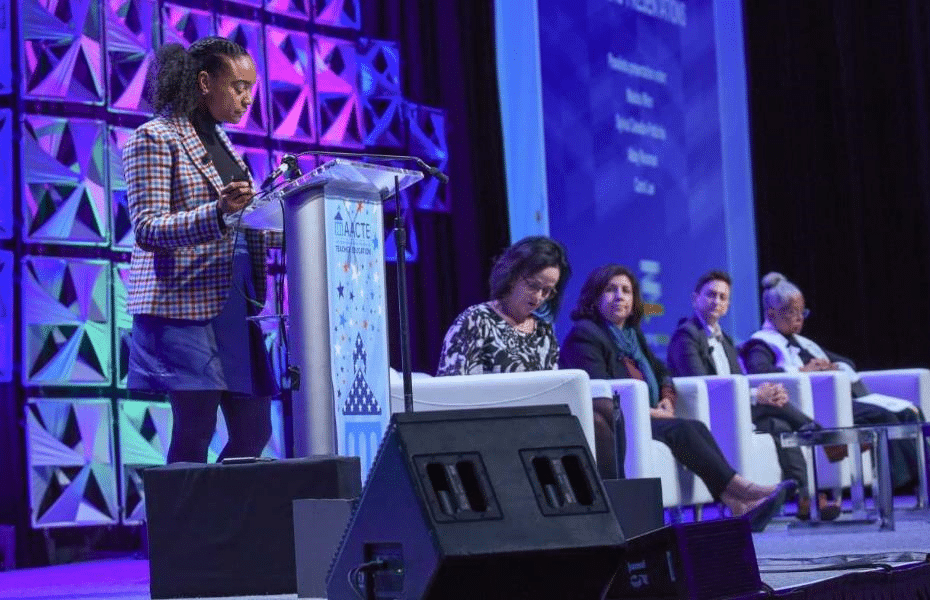
During the “Disrupting the Persistence of Oppression” Deeper Dive session, panelists explored the question: How does knowing content matter for disrupting the persistence of oppression? The panel discussion was moderated by Deborah Ball, director of TeachingWorks at the University of Michigan and included Maisha Winn, Chancellor’s Leadership Professor in the School of Education and co-director of the Transformative Justice in Education (TJE) Center at the University of California, Davis; Sylvia Celedon-Pattichis, senior associate dean for research and community engagement and professor of bilingual and mathematics education at the University of New Mexico; Abby Reisman, assistant professor of teacher education at the University of Pennsylvania; and Carol Lee, former Edwina S. Tarry Professor of Education, School of Education, of Social Policy and African-American Studies at Northwestern University.
Winn began the panel discussion with a scholarly presentation focused on restorative justice and shared a narrative framework she developed for teachers to consider when seeking justice in the school setting. The framework is based on four pedagogical stances: history matters, race matters, justice matters, and language matters. She presented the framework and shared her desire to add a fifth stance: futures matter.
02 Apr2019
By Ward Cummings
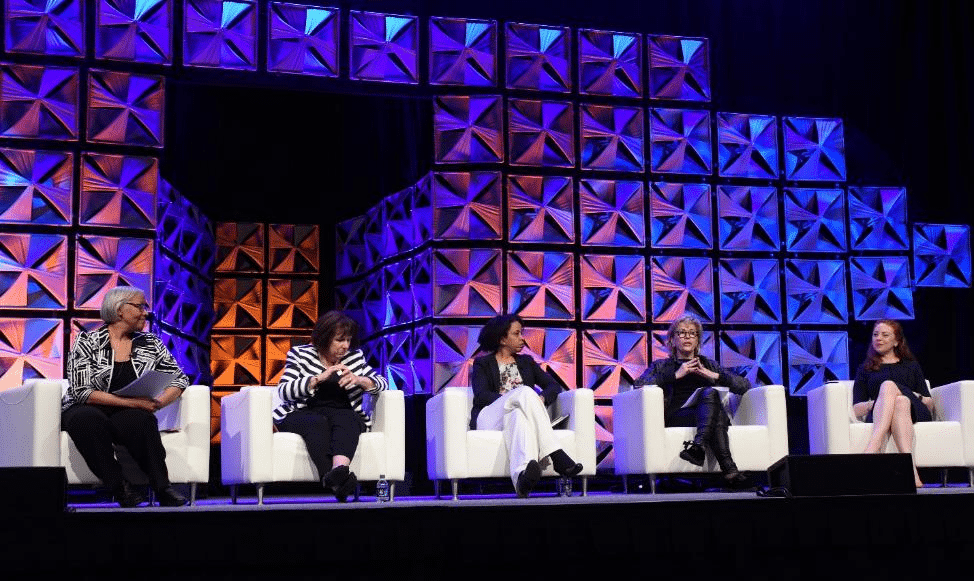
The “AACTE Initiatives toward Increasing Diversity, Equity and Inclusion in Colleges of Teacher Education” Deeper Dive session was held during the 2019 Annual Meeting. The session highlighted the association’s current, ongoing, and future commitments in these areas in a discussion moderated by Jennifer Robinson of Montclair State University and included panelists Lillian Sharon Leathers of William Paterson University of New Jersey and AACTE’s Jacqueline King, Jacqueline Rodriguez, and Jane West.
King, author of AACTE’s recently published Education Students and Diversity: A Review of New Evidence report, described the findings, which showed that education is the least diverse in bachelor’s degree fields. King shared other important data such as 50% of African American education students and 40% of Hispanic education students are independent; 30% of African American students and 20% Hispanic students had children; and 20% African American students were single parents. She emphasized that child care, for example, is an issue that cannot be ignored when considering the matter of diversity. In addition, 4% of Hispanic students are first generation students and 22% do not have a parent that has graduated from high school. The study revealed that one in five African American students work full-time and that the median family income of white, dependent students is more than double of their African American and Hispanic peers.
02 Apr2019
By Jerrica Thurman
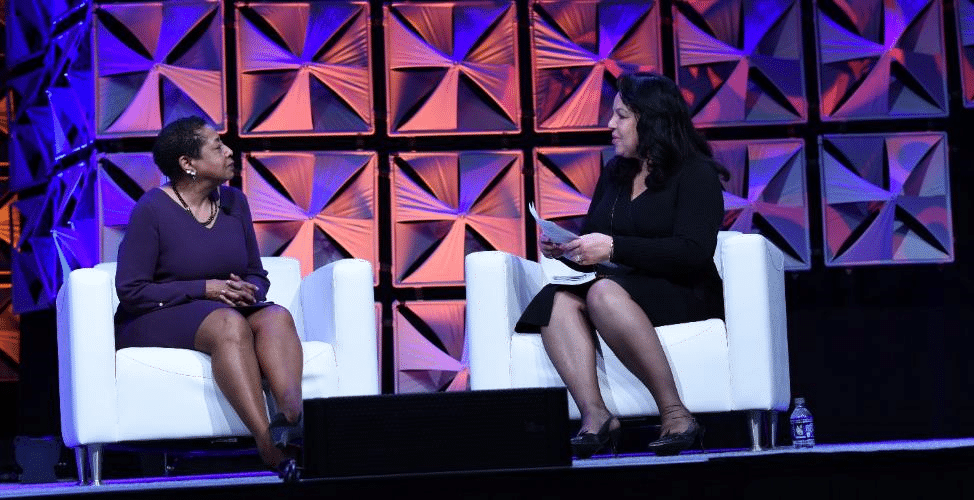
Annual Meeting Closing keynote speakers Mary Dilworth, editor of Millennial Teachers of Color, and Leslie Fenwick, dean emerita of Howard University, presented the topic, “Millennial Teachers of Color: Follow Their Lead, They Know Where We Need To Be,” on Sunday, February 24. During the session, the educators explored millennial teachers through a new lens by examining the intersection of race ethnicity and generation.
Dilworth has centered her career on teacher quality and preparation, with a keen focus on racial/ethnic and linguistic diversity and equity issues. Recently, she was a co-principal investigator for the National Science Foundation (NSF-DR12) project designed to recruit, prepare, license, and employ middle and high school science teachers from underrepresented groups. In addition, she served as a visiting professor and director of the Center for Urban Education at the University of the District of Columbia. Earlier in her career, she was a research fellow with Howard University’s Institute for the Study of Educational Policy (ISEP) and became widely recognized for heightening the national discourse on the disparate impact of licensing tests on underrepresented groups.
01 Apr2019
By Deondra Gladney and Stephanie Jones-Fosu
The AACTE Holmes Scholars Program recently welcomed two new members: University of North Carolina at Charlotte (UNCC) doctoral students Stephanie Jones-Fosu and Deondra Gladney. The two Scholars share their experience as first-time AACTE Annual Meeting and Holmes Preconference attendees.
Stephanie’s Reflection
The Holmes Scholar Program is designed to provide equitable opportunities to emerging scholars from underserved populations. By having the distinct opportunity to be one of first Holmes Scholars from UNCC, an entire level of educational greatness has been literally dropped in my lap. During the 2019 AACTE Annual Meeting in Louisville KY, the Holmes Program created an exclusive preconference event where Holmes students at various levels of education came together to learn and grow from Scholars around the country.
29 Mar2019
By Chandra Floyd
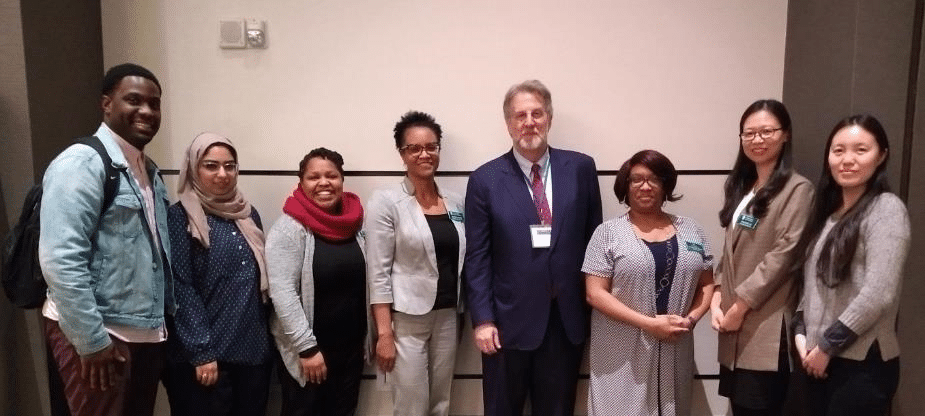
Spencer Niles, dean of the School of Education, College of William & Mary poses with Holmes Scholars (L-R) Okenna Egwu, Leila Warraich, Jessica Scott, Denise Lewis, Chandra Floyd, Jingjing Liu, Shuhui Fan
Twelve College of William & Mary (W&M) Holmes Scholars attended the Holmes Scholars Annual Meeting in Louisville, KY in February as part of the 71st American Association of Colleges for Teacher Education (AACTE) Annual Meeting. The AACTE Holmes Program encourages diversity in education by providing mentorship opportunities to students from high school through doctoral programs who are interested in careers in education. William & Mary’s 14 current Holmes Scholars are high-achieving doctoral students from populations underrepresented in higher education.
26 Mar2019
By Katrina Norfleet
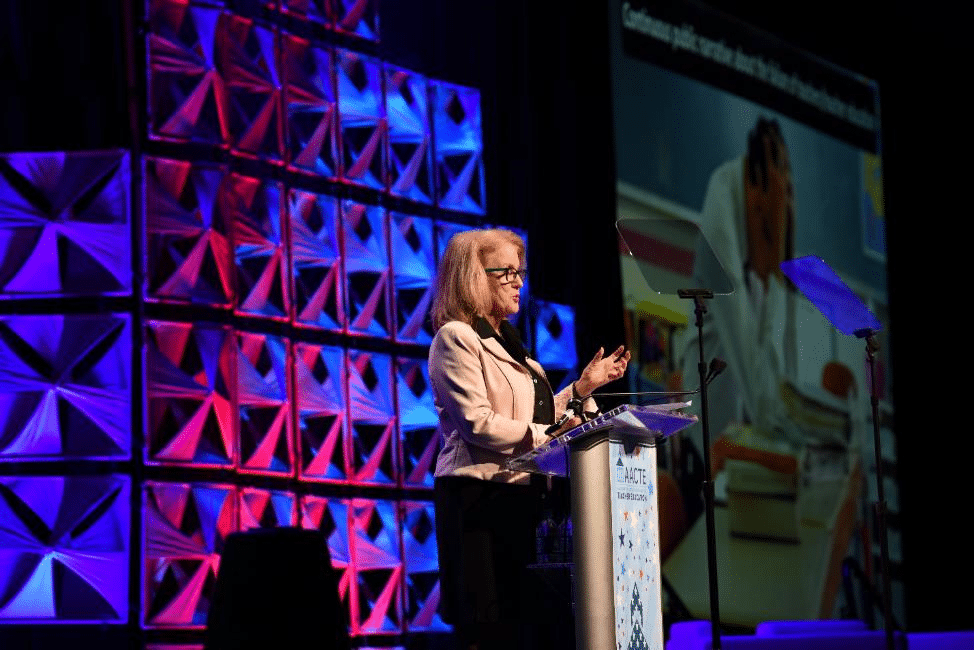
Opening keynote speakers Marilyn Cochran-Smith of Boston College and Marvin Lynn of Portland State University, explored the challenges with accountability in teacher education in a provocative discussion on Friday, February 22.
Cochran-Smith is the Cawthorne Professor of Teacher Education for Urban Schools in the Lynch School of Education at Boston College. A teacher educator for more than 40 years, she stressed that teacher educators are passionate about accountability for the learning and development of the teacher candidates they work with, as well as the students, families, and communities the future teachers will serve.
“I have never met a teacher educator who didn’t feel accountable and who didn’t want to be accountable for his/her work,” said Cochran-Smith. “The trouble with teacher education accountability is not with accountability itself; it’s what teacher education has been held accountable for.”
21 Mar2019
By Ward Cummings
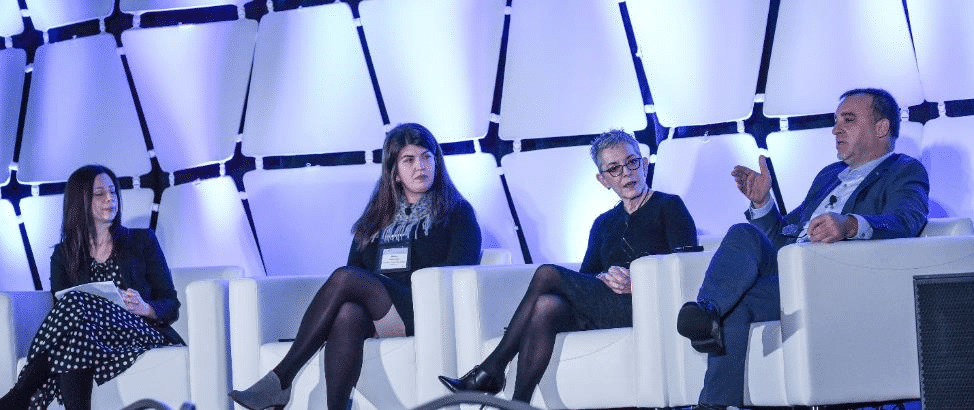
Teacher shortages vary across the country by subject area, but the shortage is worst in high-minority, low-income schools, in lower wage states, and in districts with poorer working conditions. This topic was explored during a “Deeper Dive” session at the AACTE 2019 Annual Meeting titled “Successful Strategies for the Teacher Shortage.”
Jessica Cardichon of the Learning Policy Institute led the panel discussion, which included Patricia Alvarez McHatton (University of Texas), Selma Powell, (University of Washington), and Mario Santos (Newark Public Schools). Each participant shared their strategies for addressing the teacher shortage in three critical areas: recruitment, completion, and retention.
07 Mar2019
By Barbara Baals
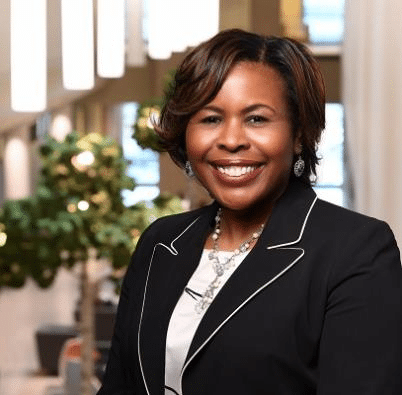 This article on AACTE Board of Director Monika Williams Shealey and accompanying photo originally appeared in Rowan Today and are reprinted with permission.
This article on AACTE Board of Director Monika Williams Shealey and accompanying photo originally appeared in Rowan Today and are reprinted with permission.
Monika Williams Shealey has been named senior vice president of the newly created Division of Diversity, Equity and Inclusion at Rowan University.
Shealey, who joined Rowan as dean of the College of Education in 2013, will oversee a division that brings together departments and programs to develop initiatives designed to address issues of access, equity and inclusion across all of the University’s campuses.
“Under Dr. Shealey, the Division of Diversity, Equity and Inclusion will be tasked with making Rowan a model institution—a University where diversity is valued and equity and inclusion are routine,” Rowan President Ali A. Houshmand said in announcing Shealey’s appointment.
26 Feb2019
By AACTE
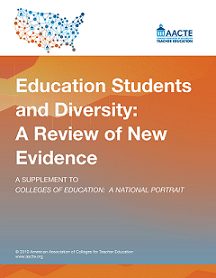 (February 26, 2019, Washington, D.C.) – Education Students and Diversity: A Review of New Evidence, an issue brief released today by the American Association of Colleges for Teacher Education (AACTE), provides new information on student diversity in U.S. colleges of education. As a supplement to AACTE’s signature report, Colleges of Education: A National Portrait, the new issue brief draws from a recently released U.S. Department of Education survey—The National Postsecondary Student Aid Study. It examines the characteristics of students working toward bachelor’s and master’s degrees in education, compares these students to the general student population, and identifies key differences by race/ethnicity.
(February 26, 2019, Washington, D.C.) – Education Students and Diversity: A Review of New Evidence, an issue brief released today by the American Association of Colleges for Teacher Education (AACTE), provides new information on student diversity in U.S. colleges of education. As a supplement to AACTE’s signature report, Colleges of Education: A National Portrait, the new issue brief draws from a recently released U.S. Department of Education survey—The National Postsecondary Student Aid Study. It examines the characteristics of students working toward bachelor’s and master’s degrees in education, compares these students to the general student population, and identifies key differences by race/ethnicity.
The issue brief presents newly available data on the following topics for education students in bachelor’s and master’s degree programs:
- Personal characteristics
- Family circumstances
- Parental education
- Financial status
- Employment
- Attendance patterns
12 Feb2019
By Jacqueline E. King, Ph.D.

One of the most striking findings of AACTE’s signature report, Colleges of Education: A National Portrait, is the lack of diversity among education students, particularly at the bachelor’s and master’s degree levels. Education Students and Diversity: A Review of New Evidence draws from a recently released U.S. Department of Education survey to examine the characteristics of students working toward bachelor’s and master’s degrees in education, to compare these students to the general student population, and to identify key differences by race/ethnicity.
The issue brief, which will be available for free download as an exclusive AACTE member benefit later this month, presents newly available data on the following topics for education students in bachelor’s and master’s degree programs:
- Personal characteristics
- Family circumstances
- Parental education
- Financial status
- Employment
- Attendance patterns
12 Feb2019
By Terrance McNeil
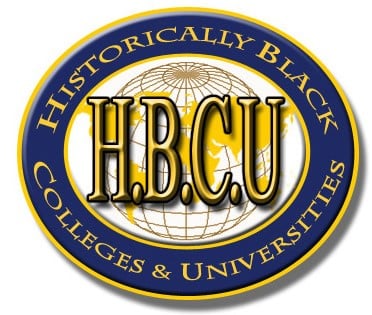 The AACTE HBCU (Historically Black Colleges and Universities) Teacher Education topical action group (TAG) will convene a business meeting on February 21 from 10:00 a.m. – 12:00 p.m. a day before the 2019 Annual Meeting in Louisville, KY. The convening, which will take place in the Louisville Marriott Downtown Hotel, will also include a special award ceremony to honor an exceptional educator who has advanced HBCU issues in teacher education.
The AACTE HBCU (Historically Black Colleges and Universities) Teacher Education topical action group (TAG) will convene a business meeting on February 21 from 10:00 a.m. – 12:00 p.m. a day before the 2019 Annual Meeting in Louisville, KY. The convening, which will take place in the Louisville Marriott Downtown Hotel, will also include a special award ceremony to honor an exceptional educator who has advanced HBCU issues in teacher education.
The purpose of the TAG is to promote dialogue, collaboration, research, and the advancement of the HBCU voice in the teacher education discussion. Since its inception in 2016, more than 20 teacher educators have joined the TAG. This special group will develop plans and a research agenda during the HBCU TAG business meeting in Louisville.
As the administrator of the HBCU Teacher Education TAG, I envision a robust discussion at this year’s annual meeting as we work to build a presence within the AACTE community. HBCUs are responsible for the production of half of the nation’s African American teachers, and I believe that a forum to promote the unique perspective of those who teach or were trained in these institutions is extremely valuable.
06 Feb2019
By Conra D. Gist
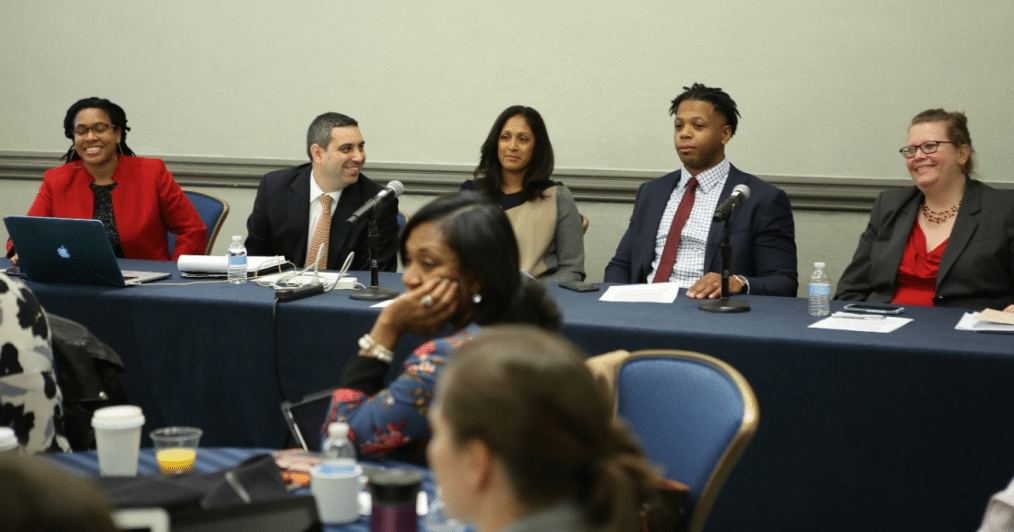
On February 21, the Third Annual Diversified Teaching Workforce Institute (DTW) will convene teacher educators, aspiring teachers, school leaders and deans from across the nation to address one of the most pressing teacher education issues—diversifying the teacher workforce. Over 200 people, including the AACTE Holmes and Networked Improvement Community Members, have joined DTW Topical Action Group (TAG) members in Tampa, FL and Baltimore, MD at the first two Institutes. The Third Annual DTW Institute, part of the 2019 AACTE Annual Meeting Preconference, is organized by leaders of the DTW TAG, with the support of AACTE’s Member Engagement and Support team.
The Institute will take place from 8:00 a.m. to 5:00 p.m. The morning activities will begin with opening comments by Marvin Lynn, College of Education Dean at Portland State University and be followed by an opening plenary, “Examining Teacher Diversity Across U.S. Policy Contexts,” to explore current teacher diversity initiatives and policies taking place in various states committed to addressing the recruitment and retention of teachers of color in the profession. Following the opening panel, the morning will offer four concurrent breakouts sessions by teacher diversity experts in growing your own initiatives, culturally responsive pedagogy, and program development focused on strategies and approaches that they are utilizing at their home institutions.
06 Feb2019
By Kelly Hinchcliffe
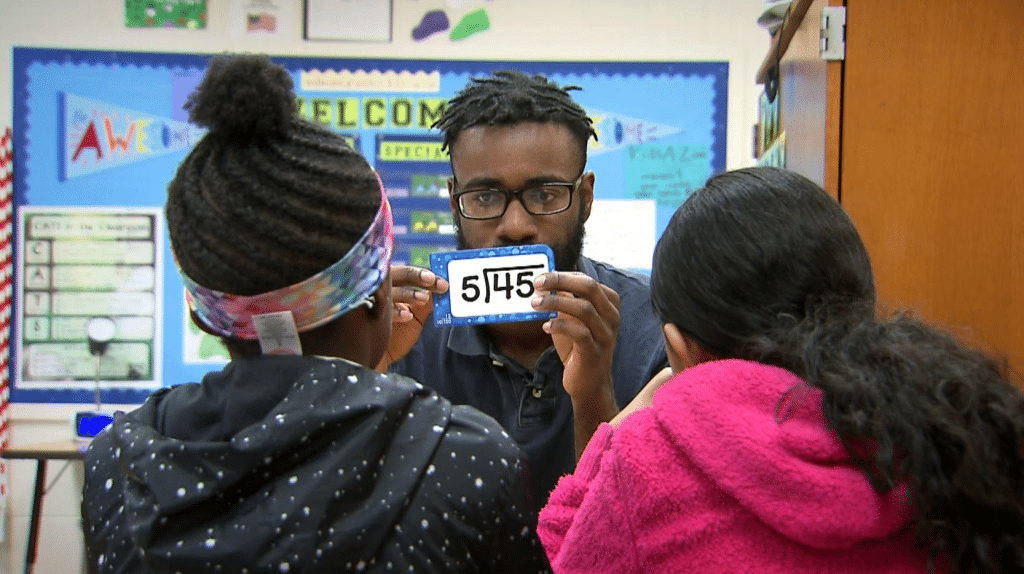
This article and photo originally appeared on wral.com and are reprinted with permission.
Muhammed Clemons, a Winston-Salem State University elementary education major, says he struggled with the way some teachers handled his disobedience when he was a child. That inspired him to become a teacher and be a role model to his future students, especially those who struggle in school like he did.
NC’s colleges of education: Student diversity
North Carolina’s 46 colleges of education enrolled more than 51,000 students in their undergraduate programs from 2011 to 2017. Search the database below to see how many students each college’s undergraduate education program enrolled by race and gender during those years. The data include both public and private colleges.
05 Feb2019
By Katrina Norfleet
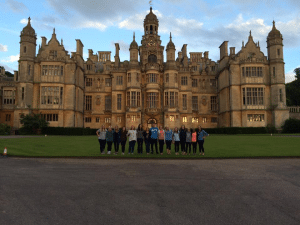 AACTE is delighted to announce Butler University College of Education as the recipient of the 2019 AACTE Best Practice Award in Support of Global and International Perspectives for its Global Network for Teacher Preparation program. Kelli Esteves, Butler College of Education (COE) associate professor and global coordinator, will be presented with the award at the AACTE 71st Annual Meeting, February 22-24, in Louisville, KY.
AACTE is delighted to announce Butler University College of Education as the recipient of the 2019 AACTE Best Practice Award in Support of Global and International Perspectives for its Global Network for Teacher Preparation program. Kelli Esteves, Butler College of Education (COE) associate professor and global coordinator, will be presented with the award at the AACTE 71st Annual Meeting, February 22-24, in Louisville, KY.
Butler’s Global Network for Teacher Preparation is a comprehensive program designed to bring international and multicultural perspectives into their teaching through experiential learning in other countries. Made up of local and global partners, the network has sent faculty and students around the world and has hosted educators on Butler’s campus and in its lab schools from Sweden, Colombia, Italy, Australia, and China to ensure its teacher candidates are exposed to international perspectives and curriculum. The network’s local partners include the College of Education’s two Reggio-inspired Lab Schools, Shortridge International Baccalaureate World School (lab high school) and Butler’s Center for Global Education. Global partners are the Institutes of Higher Education student exchange partners, including Uppsala University, Sweden, University of Tasmania, and the Education University of Hong Kong; and School partner for student and educator exchange—Vallentuna Gymnasium in Sweden.














 This article on AACTE Board of Director Monika Williams Shealey and accompanying photo originally appeared in
This article on AACTE Board of Director Monika Williams Shealey and accompanying photo originally appeared in  (February 26, 2019, Washington, D.C.) –
(February 26, 2019, Washington, D.C.) – 
 The
The 

 AACTE is delighted to announce Butler University College of Education as the recipient of the 2019 AACTE Best Practice Award in Support of Global and International Perspectives for its Global Network for Teacher Preparation program. Kelli Esteves, Butler College of Education (COE) associate professor and global coordinator, will be presented with the award at the AACTE
AACTE is delighted to announce Butler University College of Education as the recipient of the 2019 AACTE Best Practice Award in Support of Global and International Perspectives for its Global Network for Teacher Preparation program. Kelli Esteves, Butler College of Education (COE) associate professor and global coordinator, will be presented with the award at the AACTE